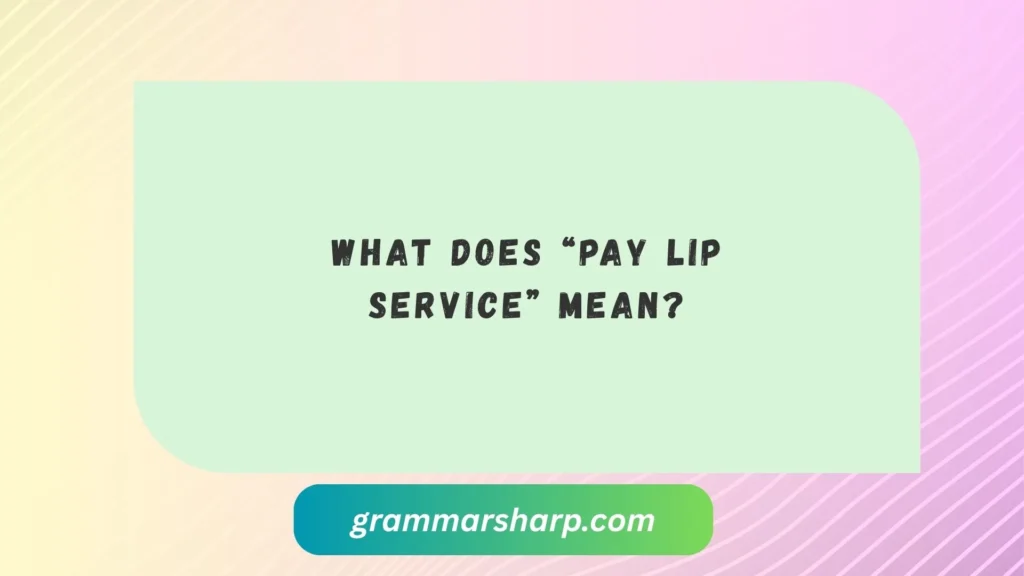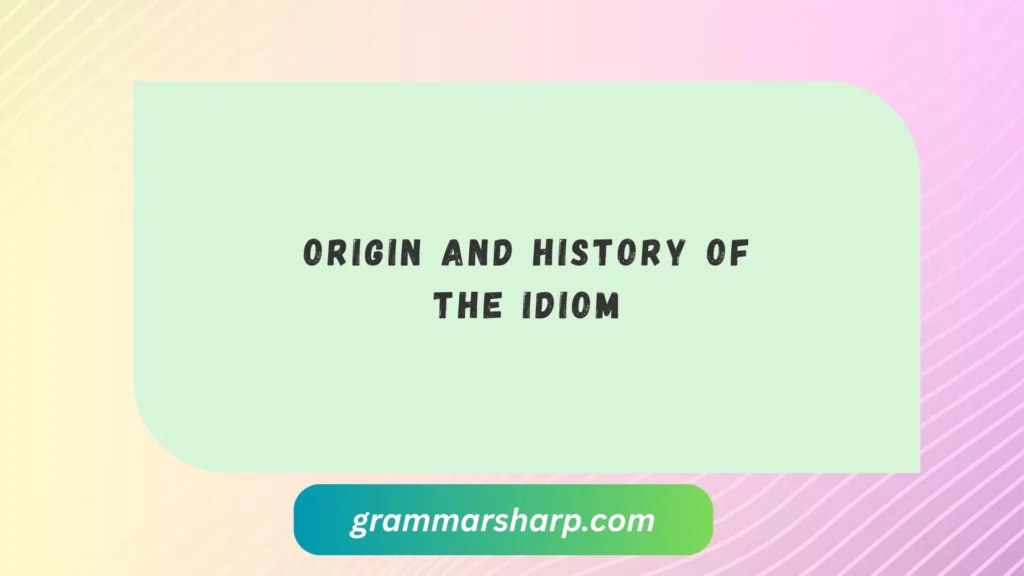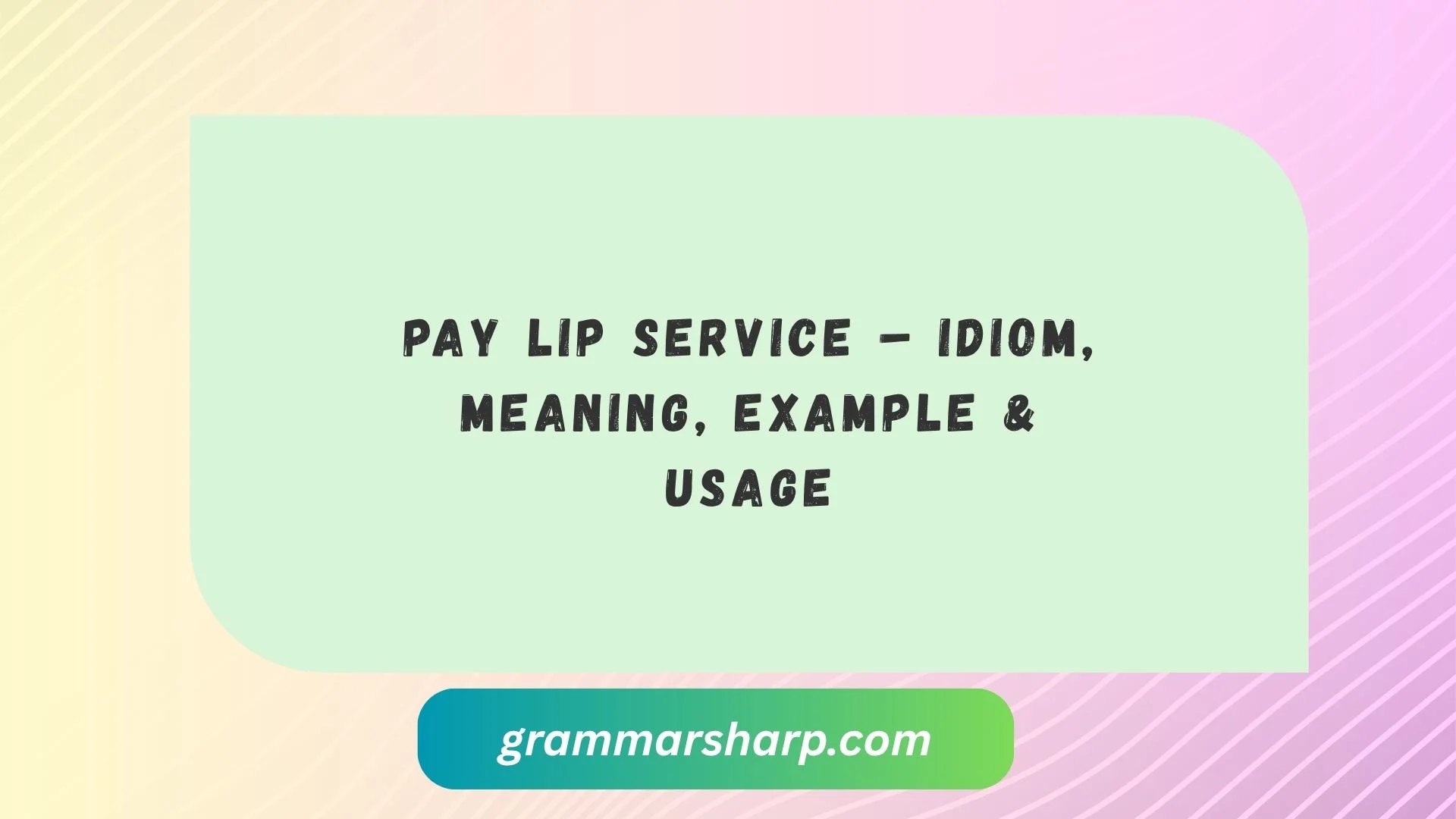Language is full of colorful phrases, and idioms make our speech more expressive. One idiom that frequently appears in conversations, business meetings, and media reports is “pay lip service.” But what does it really mean, and how do you use it correctly? Many people hear it often yet misunderstand its nuance. In this article, you’ll discover the exact meaning of “pay lip service,” its origin, practical examples, synonyms, common mistakes, and tips for using it naturally. By the end, you’ll confidently include this idiom in your writing and speech without sounding awkward.
Imagine a manager telling their team, “We value your ideas,” yet never acting on suggestions. That’s a perfect example of paying lip service. It’s a common behavior in workplaces, politics, and even personal relationships. Understanding this idiom will help you communicate more precisely and recognize when others are being disingenuous.
What Does “Pay Lip Service” Mean?

The idiom “pay lip service” refers to expressing support or agreement with something verbally without taking any real action to support it. In simpler words, it’s when someone says something to appear supportive, but their actions don’t match their words.
For example:
- “The company pays lip service to environmental policies but continues polluting.”
Here, the company talks about caring for the environment but doesn’t implement policies to prove it.
Key aspects of this idiom:
- Verbally supportive but actionless
- Often implies insincerity or superficial commitment
- Can appear in workplaces, politics, education, and everyday life
Origin and History of the Idiom

“Pay lip service” has its roots in the 16th-century English language. Historically, “lip service” referred to a verbal oath or promise made without genuine intent. People often recited words to show loyalty or agreement, but their hearts or actions didn’t align.
Over time, it evolved into a figurative expression. Instead of a literal “service with lips,” it became a way to describe empty verbal commitments.
This idiom gained prominence in political discourse during the 18th and 19th centuries, where politicians frequently promised reforms but delivered little. Today, it is widely recognized across English-speaking cultures, appearing in books, newspapers, speeches, and casual conversations.
How to Use “Pay Lip Service” in Sentences
Using “pay lip service” correctly depends on context and sentence structure. It is most often used with verbs like “pay,” “only pay,” or “tends to pay.”
Here are examples across different scenarios:
Everyday Conversation
- “She pays lip service to healthy eating but eats fast food every day.”
- “He paid lip service to the idea of helping, yet didn’t lift a finger.”
Workplace / Professional Context
- “The CEO only pays lip service to employee concerns, ignoring feedback emails.”
- “Departments that pay lip service to teamwork rarely achieve collaborative success.”
Politics and Social Commentary
- “Politicians often pay lip service to climate change without implementing policies.”
- “The government paid lip service to healthcare reform while budgets remained stagnant.”
Table: Do’s and Don’ts of Using “Pay Lip Service”
| Context | Correct Usage | Incorrect Usage |
| Workplace | “The manager only pays lip service to employee concerns.” | “The manager only pay lip service employees concerns.” |
| Conversation | “She pays lip service to healthy eating but eats junk food.” | “She pay lip service to healthy eating but eats junk food.” |
| Politics | “Politicians often pay lip service to climate issues.” | “Politicians pay lip service climate issues.” |
Synonyms and Related Expressions
Understanding related expressions helps you use language more flexibly. Here are some alternatives:
- Talk without action – Focuses on saying something without follow-through.
- Empty promises – Highlights the unfulfilled nature of the commitment.
- All talk, no action – Informal, emphasizes repeated verbal statements without action.
For example
- “The manager is all talk, no action when it comes to deadlines.”
- “She makes empty promises about volunteering but never shows up.”
Each synonym carries slightly different tones. For example, “empty promises” feels more formal, while “all talk, no action” is casual and conversational.
Common Mistakes to Avoid
Even seasoned writers and speakers misuse “pay lip service.” Knowing common errors ensures you sound precise and confident.
- Literal interpretation – Some assume it means praising someone’s lips or making flattering comments. Avoid this misunderstanding.
- Misplacement in formal writing – Overusing it in academic or professional writing can sound casual; match tone to audience.
- Verb agreement errors – Always use “pays” with singular subjects and “pay” with plural subjects.
- Redundancy – Avoid pairing it unnecessarily with synonyms like “make empty promises” in the same sentence.
Examples in Literature, Media, and Everyday Life
Real-life examples show how the idiom functions in different settings:
- Politics: “The mayor paid lip service to affordable housing while approving luxury developments.”
- Business: “Corporate boards pay lip service to diversity but fail to hire inclusively.”
- Education: “Schools often pay lip service to student mental health without providing resources.”
- Personal Relationships: “He paid lip service to being supportive but didn’t attend my recital.”
Famous Quote:
“Actions speak louder than words, yet too often, people pay lip service to both.” – Anonymous
These examples show that this idiom frequently points out hypocrisy or superficial commitment.
Tips for Using “Pay Lip Service” Effectively
- Use sparingly – Overuse can dilute impact.
- Match the context – Ideal for describing insincere promises or verbal commitments.
- Pair with action contrasts – Highlighting the difference between words and actions strengthens your sentence.
Example:
- “While the team leader paid lip service to innovation, the outdated policies remained unchanged.”
- Tone matters – It often carries a slightly critical or judgmental tone. Be careful using it in formal praise.
- Professional writing tip – Pair it with evidence, e.g., statistics or reports, for persuasive articles.
Visual Aid / Diagram: Saying vs. Doing
A simple visual representation can clarify the idiom:
This flowchart shows the gap between verbal commitment and real action, which is the essence of paying lip service.
Read More:Died in the Wool or Dyed in the Wool? Which Is Correct?
Quiz / Practice Section
Test your understanding:
- Which sentence correctly uses “pay lip service”?
a) “She pays lip service to recycling but throws trash everywhere.”
b) “She pay lip service to recycling but throws trash everywhere.” - Fill in the blank:
“The committee ____ lip service to the suggestions but ignored the proposals.” - True or False:
“Paying lip service always means the person genuinely supports the idea.”
Answers: 1-a, 2-pays, 3-False
Conclusion
The idiom “pay lip service” is powerful in describing empty words versus meaningful actions. Understanding it lets you:
- Speak or write with precision.
- Recognize superficial support in conversations, politics, and workplaces.
- Use synonyms and variations naturally for richness.
Remember, the key is to pair words with actions when possible. If someone is only paying lip service, it’s a sign to look deeper into their true commitment.
FAQs
What does “pay lip service” mean in simple words?
It means saying you support something without actually doing anything about it.
Is it formal or informal?
It works in both, but it’s slightly critical and often used in journalism, business, and everyday speech.
Can it be used in professional writing?
Yes, but pair it with evidence or examples to support your point.
What is the origin of “pay lip service”?
It originated in 16th-century England, referring to verbal oaths without real intent.

